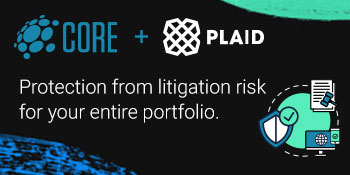On May 5, 2024, Johnson & Johnson Updated Results From Multi-Cohort Phase 1 Study Of The Safety And Efficacy; TAR-210 Results Show 90% Recurrence-Free Survival And 90% Complete Response In Patients With High-Risk And Intermediate-Risk Non-Muscle-Invasive Bladder Cancer, Respectively
Author: Benzinga Newsdesk | May 06, 2024 10:27am
Updated results reinforce the potential of TAR-210 to transform treatment of non–muscle-invasive bladder cancer with fibroblast growth factor receptor (FGFR) alterations
SAN ANTONIO, May 5, 2024 /PRNewswire/ -- Johnson & Johnson announced today updated results from an open-label, multicenter, multi-cohort Phase 1 study of the safety and efficacy of TAR-210, an intravesical targeted releasing system designed to provide sustained, local release of erdafitinib into the bladder, in patients with non–muscle-invasive bladder cancer (NMIBC) with select FGFR alterations. These data were featured today in an Oral Presentation Session (Abstract # PD48-02) at the 2024 American Urological Association (AUA) Annual Meeting taking place May 3-6, 2024, in San Antonio, Texas.
Results featured updated data from Cohort 1 (C1), patients with recurrent, Bacillus Calmette-Guérin (BCG)–unresponsive high-risk (HR) NMIBC (high-grade Ta/T1; papillary only) who refused or were ineligible for radical cystectomy and Cohort 3 (C3), patients with recurrent, intermediate-risk NMIBC (Ta/T1) low-grade papillary disease left in situ as tumor marker lesions. First results were featured at the European Society for Medical Oncology 2023 Congress, with interim results presented at the European Association of Urology (EAU) 2024 Annual Congress.
"Advancement in the treatment landscape of high- or intermediate-risk non–muscle-invasive bladder cancer has remained stagnant for more than 50 years," said Antoni Vilaseca,* M.D., Ph.D., of the Hospital Clínic de Barcelona, presenting author of the Phase 1 TAR-210 study. "Results presented today further underscore that TAR-210 for the localized treatment of bladder cancer may offer a promising alternative for patients with limited treatment options."
At the data cutoff of March 22, 2024, 64 patients had been treated with TAR-210 across the 2 cohorts. Of the 21 patients in C1 with HR-NMIBC, the 12-month recurrence-free (RF) survival rate was 90%. In C3, 31 patients were efficacy evaluable with a complete response (CR) rate of 90%.1
The most common treatment emergent adverse events (TEAEs) were Grade 1/2 lower urinary tract events. There were no dose-limiting toxicities and no deaths. Two patients (3%) discontinued the study due to TEAEs of low-grade urinary symptoms and two patients had serious TEAEs with pyelonephritis and sepsis or UTI and sepsis, respectively.1
"FGFR genetic alterations are most common in NMIBC," said Sabine Brookman-May, M.D., Vice President, Late Development Oncology, Johnson & Johnson Innovative Medicine. "These results further support the potential of TAR-210 with quarterly administration as a bladder-sparing and BCG-free treatment option, underscoring our deep commitment to pioneering novel therapies for patients who face limited treatment avenues."
TAR-210 is an investigational targeted releasing system designed to provide sustained local release of erdafitinib. Oral erdafitinib was approved by the U.S. Food and Drug Administration (FDA) as BALVERSA® (erdafitinib) for patients with locally advanced or metastatic urothelial carcinoma (mUC) with susceptible FGFR3 genetic alterations that have progressed on or after at least one line of prior systemic therapy. BALVERSA® is not recommended for the treatment of patients who are eligible for and have not received prior PD-1 or PD-L1 inhibitor therapy.2
Bladder cancer ranks as the sixth most prevalent cancer in the U.S., with over 83,000 individuals receiving diagnoses annually.3 NMIBC constitutes approximately 75-85% of these cases.4 Currently, adjuvant intravesical immunotherapy with BCG or intravesical chemotherapy is the standard of care for patients with intermediate- and high-risk NMIBC.5 Between 30 and 40% of patients do not respond to BCG, facing disease recurrence or progression.6 In such scenarios of HR-NMIBC, radical cystectomy (removal of the bladder) emerges as the primary treatment option. This major abdominal procedure requires a urinary diversion to be created to collect and store urine.7
About TAR-210
TAR-210 is an investigational erdafitinib intravesical targeted releasing system. The safety and efficacy of TAR-210 is being evaluated in a Phase 1 study (NCT05316155) in patients with muscle-invasive bladder cancer (MIBC) and NMIBC. The study categorizes patients into 4 cohorts based on their disease presentation. Cohort 1 includes patients with recurrent, BCG-unresponsive high-risk NMIBC with concomitant high-grade papillary disease who have refused or are ineligible for radical cystectomy (RC). Cohort 2 includes patients with the same presentation, but who are scheduled for RC. Cohort 3 includes patients with recurrent, intermediate-risk NMIBC with a history of low-grade papillary disease. To be eligible for C3, the presence of visible tumor(s) is required. Cohort 4 includes patients with MIBC. The primary endpoint of the study is safety (adverse events, including dose-limiting toxicity). Secondary endpoints include pharmacokinetics, RF survival in patients in C1 and C2, CR rate and duration of CR in patients in C3 and pathologic CR rate in C4.8
Posted In: JNJ




